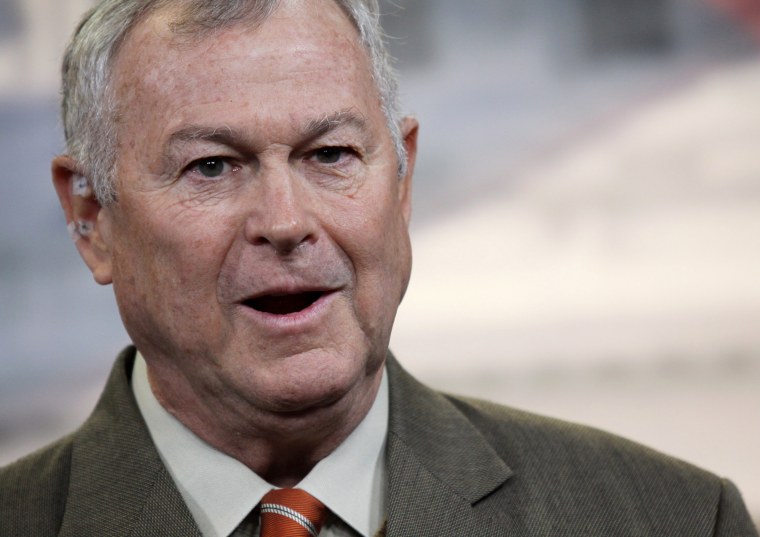On Capitol Hill on Friday night, Mother Jones' David Corn ran into Rep. Dana Rohrabacher (R-Calif.) -- who's been described as Vladimir Putin's favorite congressman -- and the veteran journalist noted Michael Cohen's reported claims that Donald Trump lied about his knowledge of the infamous Russia meeting in Trump Tower during the election.
Evidently, the California Republican was unimpressed by the apparent revelations.
So what do you think of this Cohen story? I queried. "Zero," Rohrabacher replied. I waited for more. "It's a big zero," he said.If Cohen's account is accurate, I asked, doesn't this show Trump colluded with a Putin-ordered operation to attack a US election? How is that nothing? "There's not a person in this town who would not take a meeting to get material like that," Rohrabacher shot back. He suggested he would.
It's an important, albeit disturbing, perspective. To hear the controversial GOP congressman tell it, one of the core allegations at the heart of the Russia scandal is ultimately unimportant. Russia stole American materials as part of an espionage operation that targeted our elections, and if the Republican presidential campaign welcomed Russia's assistance, and campaign officials met with foreign adversaries to obtain ill-gotten research, Dana Rohrabacher apparently doesn't see the problem.
Everyone, the Californian believes, would meet with foreign adversaries to advance his or her electoral ambitions. He certainly would.
David Corn's report added:
Would you huddle with a mobster to get opposition research on an opponent? I inquired. They didn't meet with a mobster, he responded. No, I noted, just a representative of a foreign adversary that was engaged in a clandestine operation to skew the election in Trump's favor. "But did they know that?" Rohrabacher replied.That was an interesting response. It has been widely reported, I reminded him, that the emails setting up the meeting -- which were sent to Trump Jr., Kushner, and Manafort -- stated that it was related to a covert Kremlin operation to assist Trump. Rohrabacher shrugged. He didn't seem interested.
Let's note for context that the FBI warned Rohrabacher in 2012 that Russia "regarded him as an intelligence source worthy of a Kremlin code name." Four years later, in a closed-door event last year, House Majority Leader Kevin McCarthy (R-Calif.) joked to GOP lawmakers, "There's two people I think Putin pays: Rohrabacher and Trump."
The GOP lawmaker has also been linked in news reports to Maria Butina, the suspected Russian operative who's currently in federal custody.
But even putting these relevant details aside, we're left with two principles that shouldn't go overlooked. The first, as Max Boot explained yesterday, "It is not okay for the president and his minions to work with a foreign power to influence a U.S. election. It is shocking that this argument even has to be made."
The second is that we already know that plenty of politicians wouldn't, as Rohrabacher suggested, welcome foreign assistance. When Russia offered to help Adlai Stevenson in 1960, he not only declined, he also quickly alerted the FBI. When Russia offered assistance to Hubert Humphrey, that didn't go well for the USSR, either.
Basic American patriotism has come into play before under these circumstances, and honorable politicians did the right thing. There's no reason contemporary officials can't follow their example.
